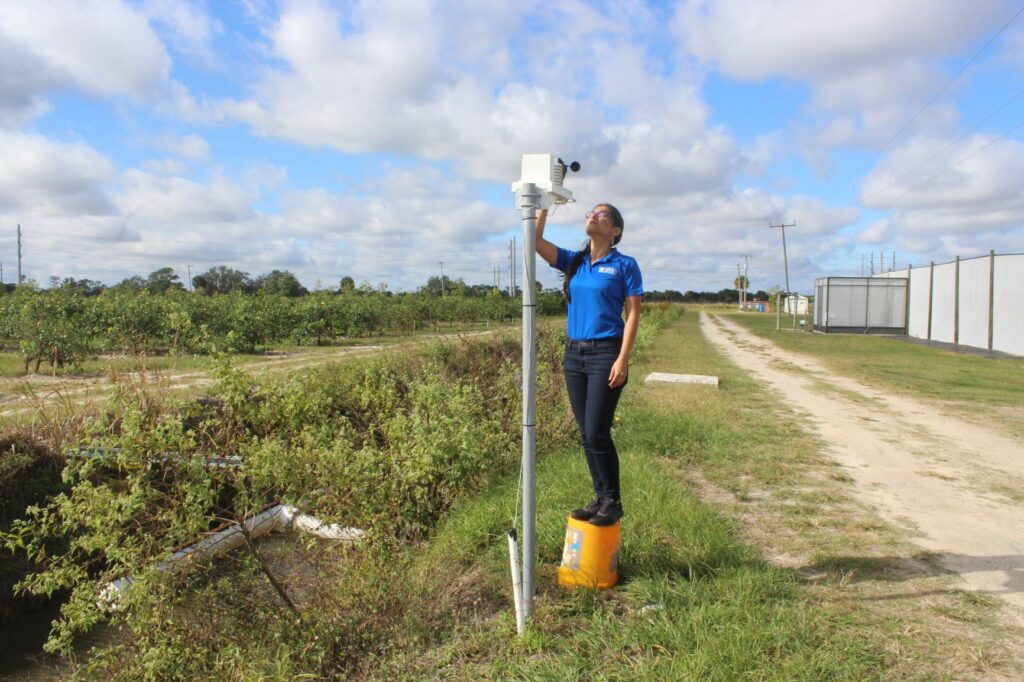New Professor Looks to Help Florida Grapefruit Industry
by TIM CRAIG
Sandra Guzman, an assistant professor of agricultural and biological engineering, will lead the center’s irrigation and hydrology program. She will collaborate with a multidisciplinary group of scientists and engineers from Alabama, Georgia, and Florida working to protect the state’s water resources. She will focus on the overlap between crop management and food production, particularly as it relates to crop-water modeling.
“I’m the new acting engineer in a project that seeks to define best management practices and evaluate ways to make use of the water during the time it is best available,” says Guzman.
Guzman will be a part of a team of researchers who support the University of Florida’s statewide Institute of Food and Agricultural Sciences goal to restore Florida’s legendary grapefruit industry.
Ronald D. Cave, director of the UF/IFAS IRECC, says that Guzman will help boost Florida’s citrus industry.
“Guzman brings specialized skills to Florida’s unique needs for both watershed protection and wise water use for agricultural production,” he says. “As we work to produce fresh grapefruit on trees infected with huanglongbing, Guzman will assist growers with modeling for maximum yield and conservative use of water resources for commercial production.”
Huanglongbing, also known as citrus greening, has reduced Florida’s citrus production to less than half of what it once was. The bacterium that causes the disease is carried by an invasive insect, the Asian citrus psyllid.
After 2017’s Hurricane Irma and the continued battle with citrus greening, the USDA reported that grapefruit production was down 50 percent, from 7.7 million boxes to 3.88 million. While the USDA forecast for the 2018-2019 season is up 72 percent, the 6.7 million boxes predicted for this year still falls short of historical numbers.
The future of the grapefruit industry depends on increased efforts to not only survive, but also thrive in the face of an aging tree population, much of which has been infected by citrus greening.
The Indian River Packing Company in Fort Meade, a family-owned co-op of growers, has already been at the forefront of efforts to revitalize the grapefruit industry.
The company’s sustainability statement recognizes the uniqueness of the citrus industry, which, unlike annual crops, citrus crops require three to five years to bear fruit and much longer to become profitable. Adding to the problem is that many of the mature trees are producing less because of citrus greening.
“Success in the citrus business requires a long-term sustainability commitment, a commitment not just to the trees, our employees, the groundwater that sustains us, and the community in which we live and work,” according to the company sustainability statement, which includes initiatives in pest management, energy conservation, technology and, of course, water management.


